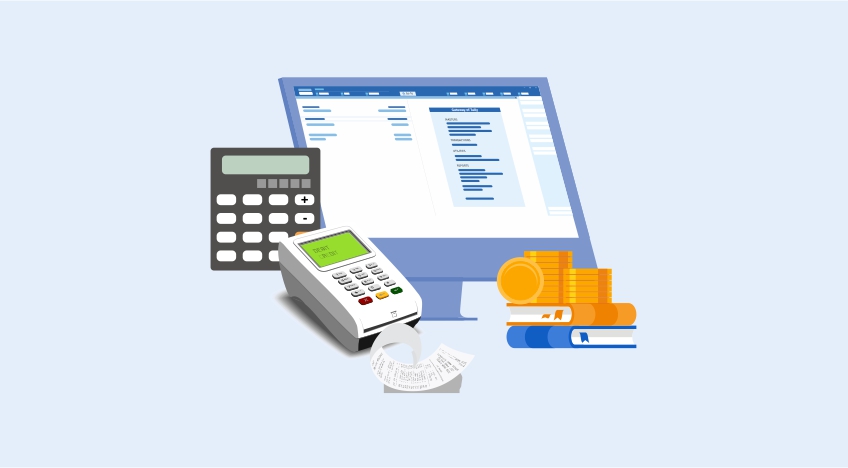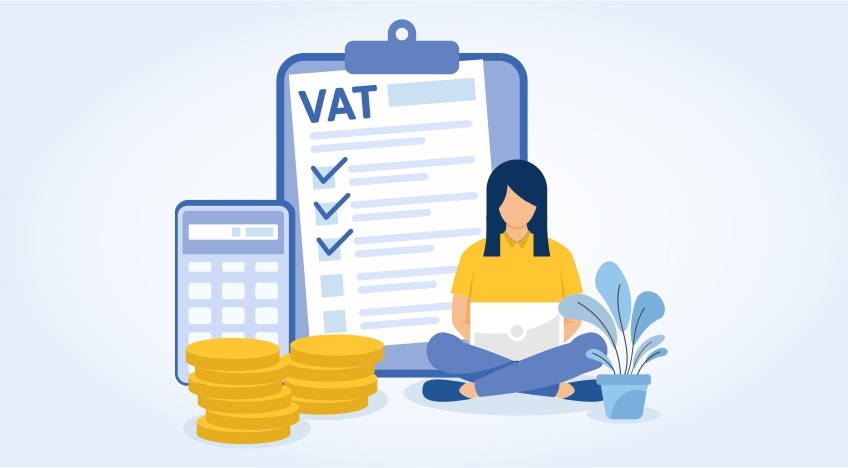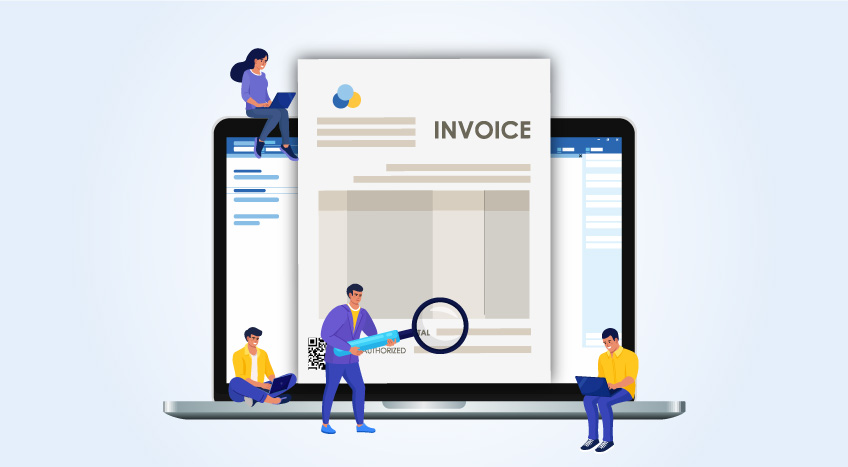VAT in Kenya
All the businesses with KSh 5,000,000 or more in the last 12 months are mandated to register under VAT. Even if the businesses anticipate that their supplies exceed KSh 5,000,000 should register for VAT. The Act also provides voluntary registration for businesses whose turnover is less than the mandatory threshold limit.
All the VAT Registered businesses must declare the details such as VAT charged on sales, VAT paid on purchases, etc., by filing monthly VAT returns by the 20th of the subsequent month.
VAT on imported services in Kenya
The import of services is taxable in Kenya VAT. Unlike the services received from domestic (within Kenya), businesses need to treat import services as if it has been supplied by you for themselves. In other words, when you import the services, you need to pay the VAT on a 'Reverse charge Mechanism (RCM)' basis.
Under the reverse charge mechanism, the recipient or the buyer of services is responsible for paying the tax to the authorities, unlike in the forward charge, where the supplier is liable to pay the tax.
Input tax deduction and apportionment of input VAT
The concept of input VAT deduction allows businesses to recover the VAT paid on the purchases or expenses and then set off it against the VAT collected on the sales. For businesses to recover input VAT, the purchases or expenses should be used in making taxable supplies or related to business activities.
In case, the purchase or expenses are used in supplying goods or services which are exempted from VAT or used for non-business purposes (personal usage), you will not be allowed to recover the input VAT on such purchases or expenses. In case if the purchases are used for making taxable as well as exempt supplies or used for non-business purposes, you need to apportion input VAT deduction accordingly.
Period allowed to deduct input tax
While the law allows for input VAT deduction, it comes with a time limit. Input VAT deduction is allowed for a period not more than six months from the date of supply or import.
Tax laws amendment act 2020-VAT on petroleum products
The VAT laws are amended from time to time, resulting in a change in policy/ procedure or tax rate change. One such change was in the determination of taxable value for petroleum products. With this change, the taxable Value for VAT will now include any taxes, duties, and levies such as excise duty and any other fees and charges. Earlier, these were excluded from the taxable value.
The importance of being compliant in Kenya
Compliance is a set of rules, instructions, guidelines or specifications laid out by the concerned authorities/ institution. What does compliance means for a business entity? As a business, it is necessary to be cognizant about it to avoid any non-compliance scenarios which will impact your business negatively. If managed well, it can help you to have easier business operations and will help in building a good reputation in the market.
In order to cope with the demanding regulatory environment, it is vital that organizations sit up and take notice of the different laws, they need to devise efficient and effective ways to maintain compliance and minimize their risk.
All businesses in Kenya have started to pay close attention to VAT - iTax and have recognized the risk as well as the rewards of being fully compliant.
Risks of being non-compliant in Kenya
Businesses that do not adhere to the rules and regulations specified by the authorities run the risk of non-compliance which results in heavy implications. Some risks of non-compliance are as follows:
- Penal actions and financial losses to the organization due to mismatch in return and records
- Loss of reputation and business integrity
- Customer loyalty is impacted
Statutory compliance management
To meet compliance deadlines for a specific regulation, Tally has come up with a VAT - iTax solution to eliminate errors which might have occurred due to omission or commission. As compliance is not a one-time event, hence TallyPrime has taken a proactive approach and re-engineered the statutory compliance solution to make them more efficient and effective so that businesses can concentrate on their core offerings. This enables the company to achieve its goals smoothly.
With the increased complexity of today’s business environment, it becomes a very challenging and monumental task to be in tune with the operational needs of the business. At the same time, not paying attention to it may result in a lot of damage to the concern. To prevent this and to provide adequate support, an organization can use TallyPrime, which will help to remain 100% compliant with the ever-changing regulatory environment.
The tally has a deeper understanding of the regulatory setting in Kenya and hence provided specialized iTax solution for the organizations. TallyPrime, a business management software from the hose of Tally, has streamlined the process right from the day to day recording of tax invoices and filings of returns every month.
TallyPrime - A accounting & iTax software
Following are some of the tasks performed by statutory compliant TallyPrime:
- One time configuration of VAT rate at the company level
- Provision to define multiple types of devices & their numbers
- Simple gateway to define PIN and tax head for the customer and suppliers ledger
- Facilitates simple tax invoice creation
- Automatic tagging of ETR into tax invoices
- Error-free tax computations
- Execute billing of zero-rated, exempt and imported items in a single transaction
- Real-time vat payable/refundable information for a given period
- Automatic bifurcation of zero-rated, exempted, general rated, exempt, and import transactions in the report
- Automatic identification of a human-created error in a transaction (if any) before filing tax returns
- Provision to save your finalized returns which can be modified and revised
- Preparation of VAT returns which can be uploaded into the KRA portal
Watch Video on How to Set Kenya VAT Details in TallyPrime
Read more on TallyPrime Kenya
What is TallyPrime, TallyPrime’s ‘Go To’ Feature, TallyPrime’s Simplified Security and User Management System, Tally’s Exception Reporting to Address Data Anomalies, 5 Things You Can Do Using Save View Option in TallyPrime, 5 Things in TallyPrime for Enhanced Business Efficiency, Analysing Business Reports Just Got Easier with TallyPrime, Personalise the Business Reports the Way You Want
Software in Kenya
Payroll Software in Kenya, Best Inventory Management Software for Businesses in Kenya
iTax in Kenya
iTax in Kenya, KRA VAT Return, How to Make KRA iTax Payment, How to Register for KRA PIN in iTax Portal, How to File VAT Returns in iTax Portal, How to File KRA iTax Returns Online in Kenya, KRA iTax Returns & Types of KRA Returns Forms, 5 Things you can do from your KRA iTAX Portal










